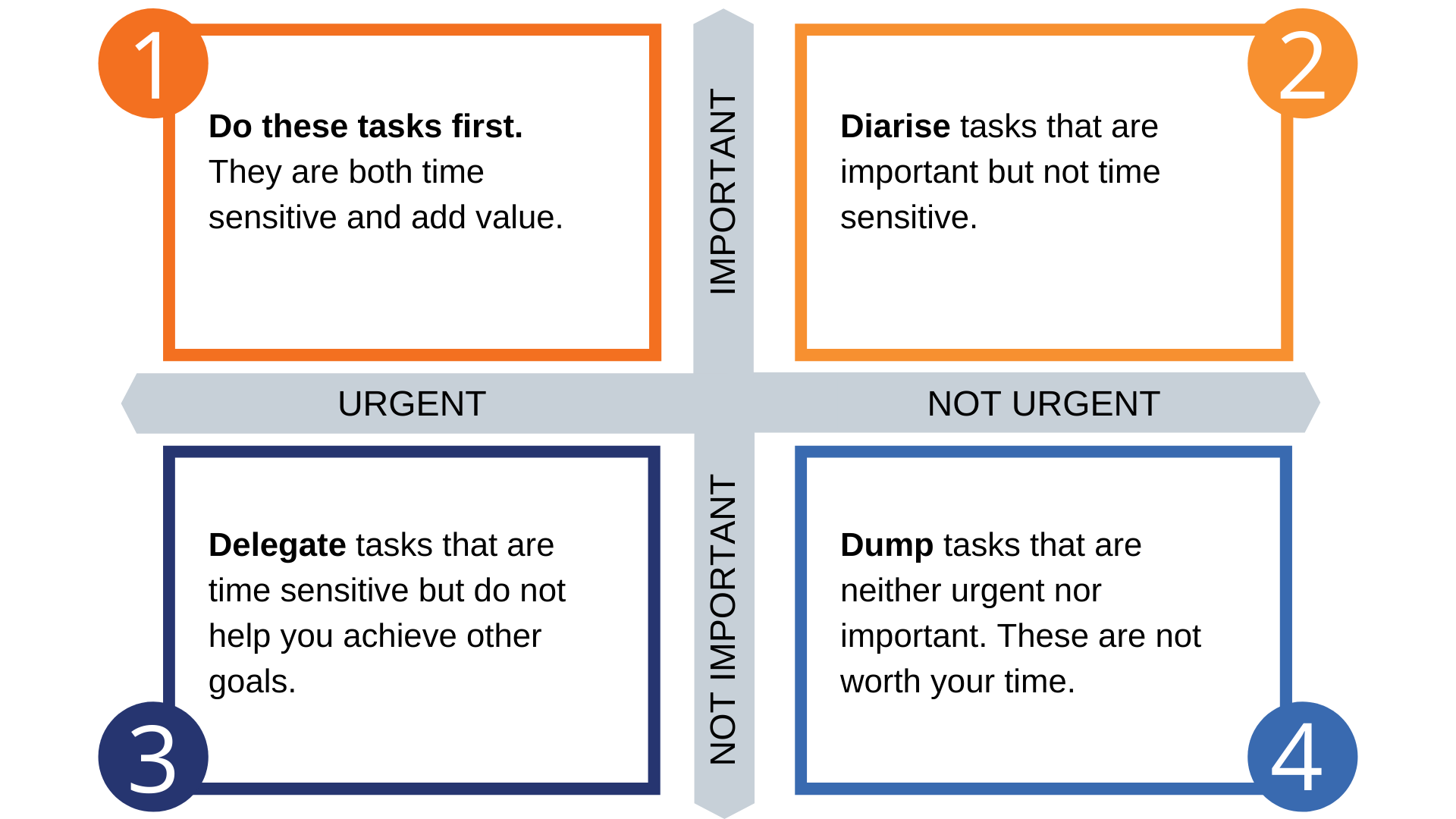Time Thieves: How You Can Identify And Avoid Them
Posted on Aug 13, 2020

Do you feel like there's not enough hours in the day? For all lawyers, time is a limited resource and between briefing colleagues, client meetings, writing letters of advice, and appearing in court it can often feel like the 24 hours in a day are simply not enough. But the problem is that we often don't know how to protect our time from distractions. So how do we minimise our time from getting stolen by these diversions? We’ve collected a list of the most common time thieves, and the best tactics to help you fight them drawn from our popular course "Time Mastery for Lawyers."
Time thieves and productivity tips
Time thief 1: Conflicting priorities
Conflicting priorities often occur when you're juggling multiple tasks and projects at the same time, and you're uncertain which task is the most important one to tackle first. These conflicting priorities can often cause frustration, unnecessary stress, and a feeling of being overwhelmed. Often, you'll spend more time worrying about a task instead of actually getting it done - not only draining your energy but also stealing precious time.
Have you ever heard of the Eisenhower Matrix? This is a great tool to help you with time management and prioritisation. Next time you have different tasks that seem to be of equal importance, divide them into one of the following categories.
- Work that is urgent and important
- Work that is urgent but not important
- Work that is not urgent but important
- Work that is not urgent and not important

Urgent and important work might include filing submissions with the court or meeting a client deadline. These are tasks that you need to get done as soon as possible.
Important but not urgent includes tasks that have to do with business development, staff training, and process improvements. You should schedule this work to ensure it doesn’t get lost among other more urgent tasks.
You can also use the matrix to identify low-value activities you spend time on such as looking through social media or idle web surfing. These are activities that don't bring value to your work, they are neither important nor urgent.
There is great value in dividing your tasks in this way - as it gives you the opportunity to focus your time on the most important and urgent activities.
Time thief 2: You don't have a plan
Working without a plan is like sailing without a compass - you are bound to get lost! You need a plan that serves as an anchor point for the day ahead. Without a plan, there's a risk that you will waste precious time and energy on more trivial tasks rather than the ones that matter.
Make it part of your routine before you leave work or first thing in the morning to make a plan for the day ahead. No matter if you like to write lists on a piece of paper, or make notes in an app on your phone, write down a few dot points and what you'd like to achieve for each task. Use the Eisenhower Matrix to help you prioritise. At the end of the day, take a look at your list - which tasks did you complete? Which tasks do you need to prioritise for another day?
Remember, your plan is not set in stone - you can be flexible and change your plan as new priorities come up.

Time thief 3: Lack of delegation
Do you often find yourself working overtime on a mundane task only because you didn't delegate it to someone else? There are many reasons why it's difficult for lawyers to delegate. Maybe you like to have control or feel like it would take too long to explain the task to another person? Sometimes it's just that you're so busy that the thought of asking someone for help doesn't even cross your mind.
When you delegate, there is a risk that you'll lose control over a certain task or that the colleague you've delegated to may make a mistake. But remember, everyone (including you) makes mistakes. Provided you supervise the task appropriately you’ll be able to identify any issues and provide constructive feedback, ensuring a smoother and faster process next time around.
By becoming better at delegating tasks, you'll get more time to spend on important tasks, and lessen your own workload. Studies also show that teams with leaders who are good at delegating, are more profitable and productive.
Time thief 4: Getting distracted
It takes an average of 25 minutes to return to your original task after an interruption. This means every interruption is taking up unnecessary chunks of your time. So what are some of the most common distractions?
Social media
Do you ever find yourself looking at the clock and realising you've spent the last 20 minutes on Facebook, or scrolling through your Instagram feed? You're not alone, 7 out of 10 Australians spend at least half an hour on their smartphones or on social media when they’re at work each day.
A golden rule is to set your notifications to "off" so you won't get distracted when your phone goes off.
You can also schedule a time during the day when you check your social media and catch up on the things you've missed.

Emails are a natural part of every lawyer's working day, but it's also a common time thief. When you pause what you are working on to open an email to find out how important and urgent it is you've already become distracted.
Start asking the people that communicate with you through email to be very clear in their email subject lines. Ask them to be very specific: what's the subject and when do they need a response? This will let you know if an email is worth your time at that moment. Similar to social media, you can also set certain times during the day when you check your email, such as first thing in the morning, after lunch and then again in the late afternoon.
Another productivity tip to manage your inbox is the "Two-Minute" rule. Ask yourself when reading the email, is this something that I can get done in two minutes or less? If you can, do it. If not, schedule it for later. This approach can free up mental space later on as not closing an open loop can drive our subconscious nuts.
Colleagues
A talkative colleague can also be a source of distraction. Next time you're in the middle of a task and a colleague wants to talk, you can try asking if what they want to talk about is urgent. If it's nothing that has to be solved straight away, apologize and say you'll get back to them later in the day at a time that suits both of you. A big part of time management is learning how to say no.
Time thief 5: Not matching brainpower to the task you’re working on
Great time management is also about managing your energy levels. One really effective way you can get more things done in a day is to understand how your energy levels change throughout the day, and match your tasks to suit this. Look at the tasks that you need to accomplish during the day - which tasks require a lot of mental energy and which require less?
Do you feel more alert, creative, and energised early in the day? Plan your day so you can do the tasks that require more focus - such as replying to a complex email, or having a meeting with a demanding client - in the mornings. Of course, if you are more alert in the afternoon, you should try to tackle more demanding work later in the day.
By matching your tasks to your energy levels you are more likely to produce higher quality work in less time, and achieve better results while feeling less stressed.
We have distractions around us everyday at work and unfortunately you’ll never be able to eliminate distractions or interruptions completely, but you can find ways to manage them better. Start today with a few of these simple tips we’ve given you and don’t let the time thieves steal any more of your precious time.




